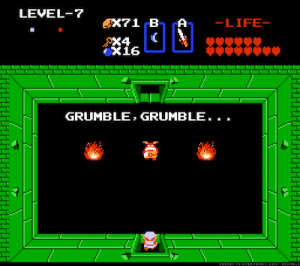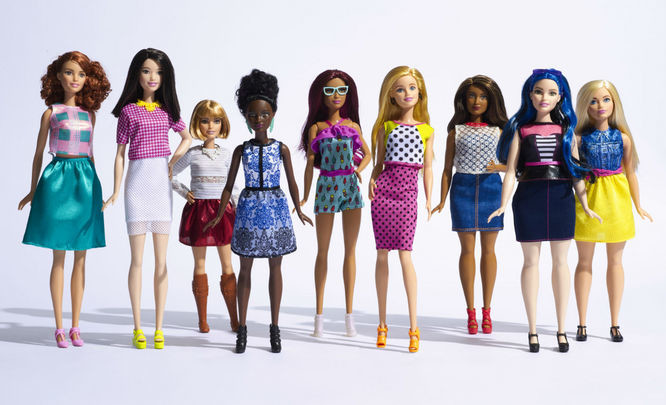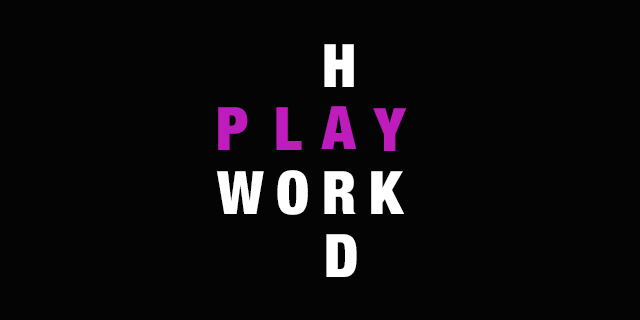Last week, I rushed home to Arkansas because my mother was having surgery to remove tumors that had been discovered on her right ovary. Her tests came back with cancer markers, and the mass was growing so rapidly, nearly doubling in size in a matter of days, so we all feared the worst. We didn’t talk about it; no one really said cancer, but we were all preparing for it. I can say it now, because it wasn’t cancer: we were all preparing for my mother’s death. But the tumors were benign, and surgical precautions were taken to prevent future tumors that might not be. Suddenly, all is well.
I spent a lot of time in the hospital, listening to my mother sleep, listening also to the noises of her pain and counting the hours until it was time for medicine. Everything made her sick; she couldn’t eat, she hated to take her medicine, and so her rest was fitful, both constant and shallow. I sat, trying to read and failing, trying to work and failing that, too, because the internet connection was terrible and there was no good place to set up in her hospital room, so finally I gave up and cycled through games. In the airport, on the way to Arkansas, I’d played Depression Quest, and had planned to go through again, thinking more about narrative, but in the hospital, I couldn’t concentrate on something like that. Even Alphabear was making me anxious. Finally I tried Don’t Starve, and found an almost immediate relief in watching the little avatar run through the field, legs bouncing back and forth. I picked carrots and chopped trees. I planted and re-planted grass tufts around my base to get the patterns I wanted, not for any strategic reason, but because considering aesthetics was soothing. Don’t Starve helped, too, because my partner and I often play Don’t Starve Together, so when I messaged him that I was playing, we started sending pictures of our current games back and forth. There’s never been a better break from discussing the pros and cons of morphine versus oxycontin. Burning down forests (for charcoal!) has never felt so normal.
But it was a terrifying few weeks, that time leading up to the surgery and the healing after, not only because I was worried for my mother and for my children, who love their “Damma,” but because it was three years ago this month that I lost my father to cancer. Now that everything has calmed down, I’m able to process some of the emotions that I couldn’t quite handle when I was escaping into the forests of Don’t Starve.
My daughter never knew her grandfather, my father; I found out I was pregnant with her a few days after he died, but oh, he would have loved that little daredevil, who seems to be growing up without any idea about practical considerations such as fear and self-preservation. He would have appreciated that. She’s following her brother’s footsteps — and ours — into playing games, and so with everything that’s happened lately, the crushing fear and the immediate, overpowering relief when the surgeons told us last Wednesday that the tumors were benign, that my mother did not have cancer, I thought I might reprint this essay, originally published back in February, though now with a different frame.
As a group, we’ve written a lot here about gaming through the tough times, and now that I’m not sitting in a hospital room, it’s easier to see what I was doing and what I needed as I paced around the hospital room. I didn’t even save the games I started; I played until I was needed and I started again later, throwing away whole worlds and efforts because they didn’t matter. In the essay below, I wrote about wanting to teach my son the notions of practice and effort, but this, too, is a good lesson: that the games don’t have to matter. That it’s okay if they don’t. That the simple act of playing without thought can be a kind of meditation that can take us from one place and into another, so that we can breathe again, away from the weight of worry. That escape is okay now and again, for its own simple sake.
This piece was originally titled “Passing On a Gamer’s Legacy.” I’m reprinting it here not because my father is dead, but because my mother is alive, and healing, and will be back to Farmville soon, I expect.
 As a young child, I played games with both my mother and father in different ways. I remember playing Ms. Pac-Man with my mother; there was a machine in one of the restaurants where she worked, and we huddled over it many an afternoon, taking turns navigating the mazes and avoiding ghosts. With my father, it was Super Mario Bros., Duck Hunt, and The Legend of Zelda — we poured weeks into Zelda, playing again and again. The first time we played, we got stuck at that hungry Goriya. We were there for days, trying to figure out just what “grumble, grumble” meant. Maybe I thought of it, and maybe he did. I don’t remember that. What I do remember is jumping around in my grandmother’s kitchen, jubilant and celebrating, because we’d figured out how to move on.
As a young child, I played games with both my mother and father in different ways. I remember playing Ms. Pac-Man with my mother; there was a machine in one of the restaurants where she worked, and we huddled over it many an afternoon, taking turns navigating the mazes and avoiding ghosts. With my father, it was Super Mario Bros., Duck Hunt, and The Legend of Zelda — we poured weeks into Zelda, playing again and again. The first time we played, we got stuck at that hungry Goriya. We were there for days, trying to figure out just what “grumble, grumble” meant. Maybe I thought of it, and maybe he did. I don’t remember that. What I do remember is jumping around in my grandmother’s kitchen, jubilant and celebrating, because we’d figured out how to move on.
I find myself thinking about that moment a lot these days, because my father died in 2012 and it was one of our best moments together, a pure moment from my childhood, actual happiness not sullied by his alcoholism, or my grandmother’s. We had precious few of those, even as I grew up. My father spent a long stretch of my adult life in prison, and was only out for a few years before he succumbed to cancer, but even then, there are few moments as good as our realization that it was the Goriya’s desire for a snack that was keeping us from progressing. I think of that moment, too, because I play so many games with my son, and I wonder which moments he’ll remember twenty-thirty years from now. What he’ll think about when he’s playing with his own children, if he has any.
We’ve been playing a lot of Destiny lately. I wasn’t into it at first, when we rented it for the 360, but now that we’ve bought an Xbox One, I find myself drawn to the game and I’m playing as much as my husband and son. We play on a rotating schedule, and one of us is with him as he plays, ready to help or explain, though he prefers roaming outside of missions, just hanging out on Earth or the moon. Once I leveled my Hunter past his Titan, he got upset, though, so we’ve been encouraging him to play more missions. Sometimes, he comes to us for the end segments. “I can’t do it,” he’ll say. “I keep dying.” I was sitting with him last week, watching him struggle through a wave of thralls, analyzing his play: barreling forward, guns blazing, but also afraid of the enemy and just in a panic. Wanting it to be over so he could get back to more manageable sets of enemies. I recognized it because I still feel that way now sometimes when I’m playing shooters, and it’s one reason I prefer distance damage or more deliberate characters — helps me to have the time to breathe and think. “Stop charging forward,” I told him. “Hang back and let your life refill when it starts flashing red.” He asked me to show him, so I took the controller and started playing, explaining strategy as I went.
I don’t remember learning how to play. Just the playing stands out, though I’m sure there were moments like this. I’m sure my mother talked to me over those games of Ms. Pac-Man; I’m sure my parents, between bouts of swearing at that damned dog, gave me tips on improving my Duck Hunt skills. Surely someone was there as I learned to time jumps in Super Mario Bros. or Castlevania, but I can’t be sure. There’s a lot I don’t remember. With my father, there was too much to forget — the fights, the threats of suicide, the flashing lights of the police. As I locked away the worst of my childhood, some of the best moments went, too; there are gaps now in my memory, holes that can never be filled.
I don’t want that for my children. I’m not an alcoholic, and I’m not violent — I’ve never so much as spanked them — but I do work a lot, and my son’s father and I split when he was only two, so these moments, when we’re on the couch playing together, or building log towers in the playroom, they’re important. We need all the time we can get, time for me to reassure him that he’s important to me, that his happiness is essential. I want him to know that I’ll be there for him, to teach him whatever he wants to learn, even if it’s as simple as using the environment for cover in a shooter.
I do have some things from my father — a love of steak and Star Trek, an appreciation for teriyaki everything, a penchant for arguing — but I don’t remember learning to play games until I was much older, when my then-boyfriend Jason taught me how to stop flailing and start playing Goldeneye, and it’s him I thought of as I ran around the moon, showing my son how to make the most of everything around him. But wasn’t I always learning, from the first moment we turned on the NES? Wasn’t my son learning when, as an infant, I put an Xbox controller into his hands? Maybe it wasn’t technique, but I was passing something else on to him: a love of gaming, of the feeling of a controller in your hands. When I teach him about missions, and about practice, I want him to learn not the specifics of Destiny, but about working for what you want, a lesson that extends far beyond gaming. And I want him to learn, too, that there are connections here, that just as the avatars in the game represent real people who are doing the same things he is, that we are doing something real — making connections and growing. That gaming isn’t just something we do to pass the time; we do it to think, and learn, and to work and practice. I may not remember my father teaching me much about games specifically, but I do remember that — the thinking and working, the endless practice — and that’s what I’m passing on to my son whenever we pick up a controller. That’s what I hope he will remember someday when he is grown, and when I am gone.




